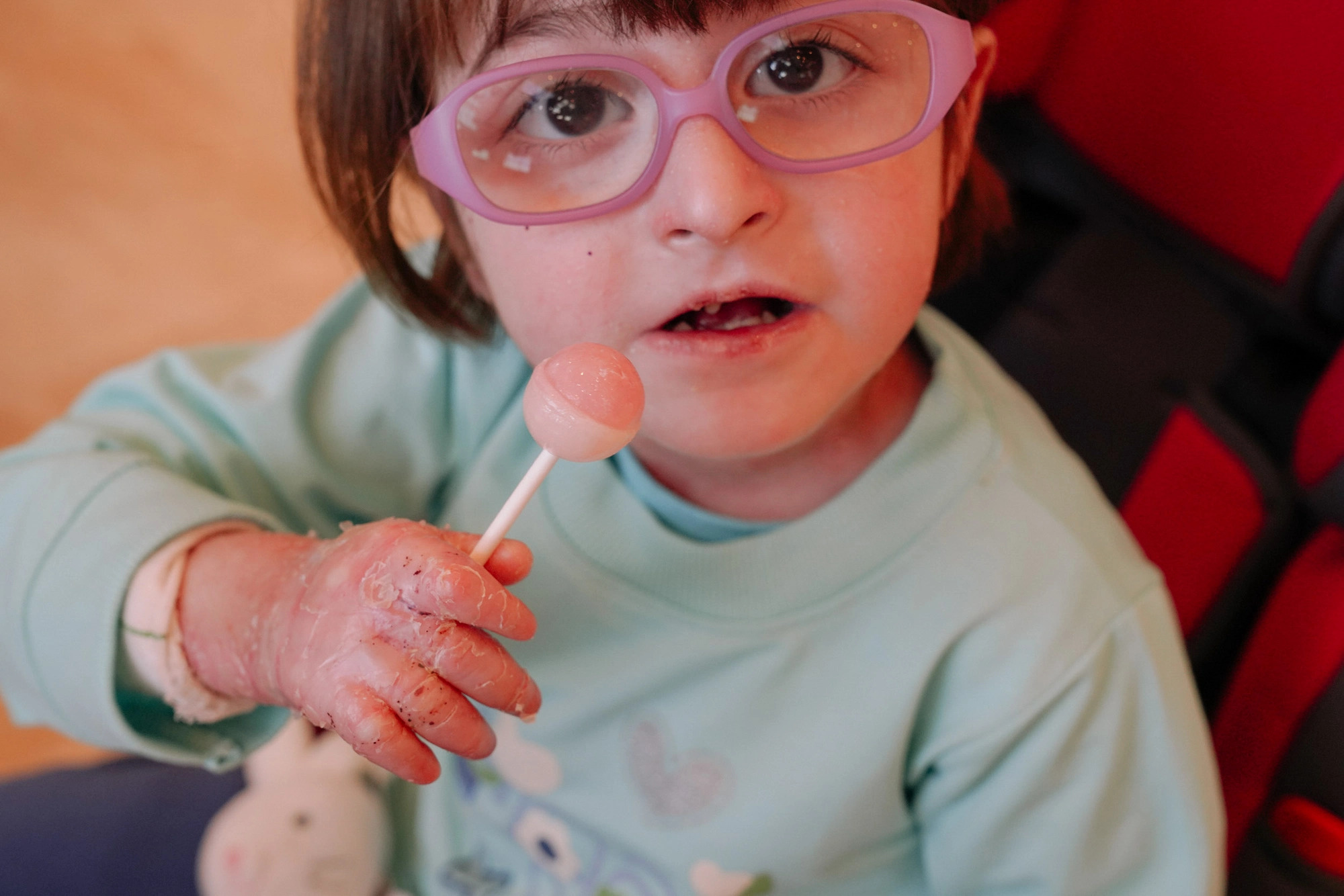On February 2, 2024, Pulitzer Center grantee Tanvi Misra received good news from the Nasiris, an Afghan refugee family living in immigration limbo in Qatar.
Misra spent months following the family for her Pulitzer Center-supported project, The Little Afghan Girl Left Behind. The Nasiris hadn’t been able to live outside the U.S. Army base in Doha—converted into a refugee camp—since they arrived there nearly two years ago. Now, they’ve finally been admitted to Canada.
Misra has been in contact with the Nasiris and their caseworkers, waiting for updates after her article was published in POLITICO in September 2023.
“I think the family was demoralized, I think they expected a bigger, quicker bang from the story,” Misra said. “I've been very straightforward that some stories lead to changes and some stories don't. I couldn't promise anything. But it turned out that a few weeks down the line after the story published, they had the next few steps of their interview for resettlement to Canada.”
When the Taliban took over Afghanistan in August 2021, the Nasiri family began to worry. Najeeb and Atefa Nasiri didn’t want to leave a life surrounded by family and friends, but their 6-year-old daughter, Ifat, has a rare skin condition that causes numerous complications and requires extensive medical care. Until 2021, the family took frequent trips to Pakistan and India for Ifat’s care. Then, access became far more difficult.
The Nasiris decided to leave Afghanistan in April 2022 on a U.S.-administered evacuation flight. They figured Najeeb’s former job at the U.S. Embassy in Kabul would fast-track him for a Special Immigrant Visa, created for Afghans and Iraqis like him at risk of becoming a Taliban target. As Misra reports, however, the State Department’s limited capacity couldn’t handle the backlog of SIV applicants.
As the Nasiris received a series of confusing rejection letters and delays, and were even suspected of being a security risk, they spent 20 months at the camp, mostly confined to a single room. They were only able to leave when Najeeb took Ifat to hospitals around the city for her medical care. In June 2023, the Nasiris began interviewing for resettlement in Canada. They finally heard back in early February. Less than a week later, they were on a flight to Toronto.
Najeeb sent Misra a video of Ifat and her younger sister, Surwat, jumping happily on the bed after learning the news. They shouted in English learned from cartoons, “We are so happy, we passed!”
“This whole time the kids were thinking about this as an exam that they were supposed to pass or not pass,” Misra said. “I think that encapsulated in very few words what I tried to do in 5,000 words—that there’s this exam that could change their lives and they felt like they had to do well to be able to succeed.”
For Misra, keeping in touch with the Nasiris spoke to bigger trends in journalism. Often, migrant stories focus on the most sensational part of the journey. What often goes underreported are the periods afterward, when migrants are facing bureaucratic hurdles or adjustments to life in a new place.
“That is a part of the story that often gets left out or glossed over,” Misra added. “Almost all migrants go to a third place before they actually get to their destination. What happens in those third places?”
Misra also considered how to balance the representative power of the Nasiris’ story while contextualizing it as just one experience of many.
“We, as journalists, are in a position of power,” Misra explained. “Some stories are just more feasible—I have more access, or it can be done in a certain amount of time, or the timing is right. There's just so many elements that go into choosing one person's story to elaborate on and draw out as opposed to someone else's.”
While it can be hard to make immigration bureaucracy interesting to readers, Misra said she hopes to infuse a sense of immediacy in her reporting on health barriers. Her future reporting might explore how public health has been used as a hurdle throughout U.S. immigration history, with reverberating effects today.
“There is sort of a medicalized security theater, in every part of the process, that we haven't really uncovered,” Misra said. “There's a lot that's taken for granted. I'm really curious about the consequences of that.”











